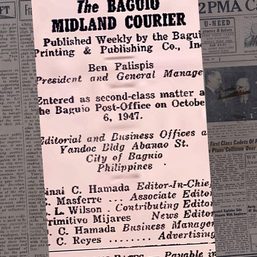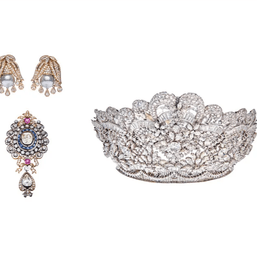SUMMARY
This is AI generated summarization, which may have errors. For context, always refer to the full article.

The Philippines has come to terms with the Marcos family’s history. The “best proof” is the election of Ferdinand “Bongbong” Marcos Jr. as president.
This – Marcos’s claim – is my biggest takeaway from the 21-minute interview of the President with the ABC during his visit to Melbourne for the ASEAN-Australia summit in early March.
Here’s the last question in the interview:
Q: …other countries in the region, including Australia, want to know that the Philippines and you, as a Marcos, have come to terms with your family’s history.
A: Of course, we have. We continue to do the work that we feel is our duty and we cannot do that otherwise…I think those issues… there was a time when the issue was Marcos. That is not the case anymore. The best proof of that is my election.
The confidence with which Marcos said this and the finality of his conclusion were both striking and disturbing. His statement implies three things:
- First, that a segment of Filipinos, with little question, has accepted the 14-year dictatorship and its horrific cost to lives and liberty, the top-level corruption and plunder of the country’s coffers;
- Second, that many Filipinos have forgotten this dark part of our history and the young ones have no memory of it, not having been taught this in schools;
- Third, with that behind us, Marcos can rule without the burden of his family’s history, as if he were given a blank slate upon which to rewrite it and open a new chapter with his presidency. Marcos is saying that his victory is a validation of the public’s acceptance of his family and should put an end to references to their wrongs. This seems to be his story of atonement, a message he brings to the world.
Battle for memory
Thus, it is vital that there should be no pause in the battle for memory during Marcos’s six-year term. Understandably, there’s this tension between the present and the past as his family’s history hovers over his leadership. Should we judge his presidency in the dark shadow of his late father’s brutal regime? That, for me, is the inescapable context of his presidency. And the rest is for us to decide – and for history to watch.
Sure, there are points in his favor. In foreign policy, Marcos is standing up to China, the bully. While he is strengthening our country’s alliance with the US, he is also diversifying the Philippines’ security cooperation with countries like Australia, Japan, Canada, France, UK and the Netherlands. (More on the Philippines and Europe in the later part of this newsletter.)
Another plus point for Marcos is that he is not like his dictator father. He is benign. Those who know him describe the President as someone who exudes “good vibes,” is chill and easygoing. As he told ABC, chuckling: “I have no impulses to authoritarianism whatsoever…I have not felt any tug or temptation to make it a more authoritarian system.”
We welcome this but it doesn’t mean that we downplay the past. Various efforts of schools and civil society groups to document and remember the late dictator’s regime and its downfall should continue. Historians and educators should remain vigilant about attempts to revise our history textbooks, those that whitewash the blood and gore of the Marcos dictatorship.
Philippines in Europe’s eyes
A few words on Europe’s intensifying interest in the Philippines as Marcos visited Germany, the largest economy in Europe, and the Czech Republic last week.
Europe expanded its gaze to the Philippines starting last year when Ursula von der Leyen visited Manila, the first European Commission president to do so. This signaled Europe’s intent to play a larger role in the Philippines, mainly in maritime security cooperation by “sharing information, conducting threat assessment and building the capacity of the coast guard.”
Soon after Von der Leyen’s meeting with Marcos, the European Union (EU)-Philippine Sub-Committee on Maritime Cooperation, reported to have been created at the request of the Philippines, met for the first time in Brussels in September 2023.
The European Commission stated in a readout that the EU and the Philippines agreed to “stand up for the rules-based international order and the principles of sovereignty, territorial integrity and non-aggression, as protected by the UN Charter.”
The context of all this is China’s escalation of its aggressive behavior in the South China Sea as well as near Taiwan. Moreover, apart from Europe’s emphasis on freedom of navigation in the South China Sea, European defense companies have a role to play as the Philippines modernizes its armed forces and is set to acquire fighter aircraft and warships.
In Berlin, Marcos said in a press conference with German Chancellor Olaf Scholz that there are no details yet of any procurement of defense equipment from Germany but the training of the Philippine armed forces and coast guard will be expanded. It is little known that the Philippines and Germany forged a military training cooperation in 1974.
As for the Czech Republic, President Petr Pavel said in a press conference with Marcos in Prague that his country has a lot to offer in the field of defense, opening a wide space for cooperation with the Philippines. But this is still for future discussion.
Earlier, Defense Secretary Gilberto Teodoro and Ambassador Karel Hejč had discussions on security cooperation. The Czech Republic offered trainer jets, intelligence, surveillance and reconnaissance equipment, radars, and the maintenance, repair, and overhaul of defense equipment, according to the Philippines’ defense department.
The Philippines appears to be in the spotlight as Europe eyes it as an “Asian security anchor.”
Let me know what you think. You can email me at marites.vitug@rappler.com.
Add a comment
How does this make you feel?
![[Closer Look] ‘Join Marcos, avert Duterte’ and the danger of expediency](https://www.rappler.com/tachyon/2024/06/TL-trillanes-duterte-expediency-june-29-2024.jpg?resize=257%2C257&crop_strategy=attention)

![[Newspoint] A Freedom Week joke](https://www.rappler.com/tachyon/2024/06/20240614-Filipino-Week-joke-1.jpg?resize=257%2C257&crop_strategy=attention)


![[In This Economy] Marcos’ POGO ban is popular, but will it work?](https://www.rappler.com/tachyon/2024/07/thought-leaders-marcos-pogo-ban.jpg?resize=257%2C257&crop=255px%2C0px%2C720px%2C720px)
![[Rappler Investigates] POGOs no-go as Typhoon Carina exits](https://www.rappler.com/tachyon/2024/07/newsletter-graphics-carina-pogo.jpg?resize=257%2C257&crop=424px%2C0px%2C1080px%2C1080px)






![[OPINION] If it’s Tuesday it must be Belgium – travels make over the Marcos image](https://www.rappler.com/tachyon/2024/04/tl-travel-makeovers-marcos-image.jpg?resize=257%2C257&crop_strategy=attention)


![[Just Saying] SONA 2024: Some disturbing points](https://www.rappler.com/tachyon/2024/07/TL-marcos-sona-points-july-23-2024.jpg?resize=257%2C257&crop=335px%2C0px%2C720px%2C720px)

There are no comments yet. Add your comment to start the conversation.